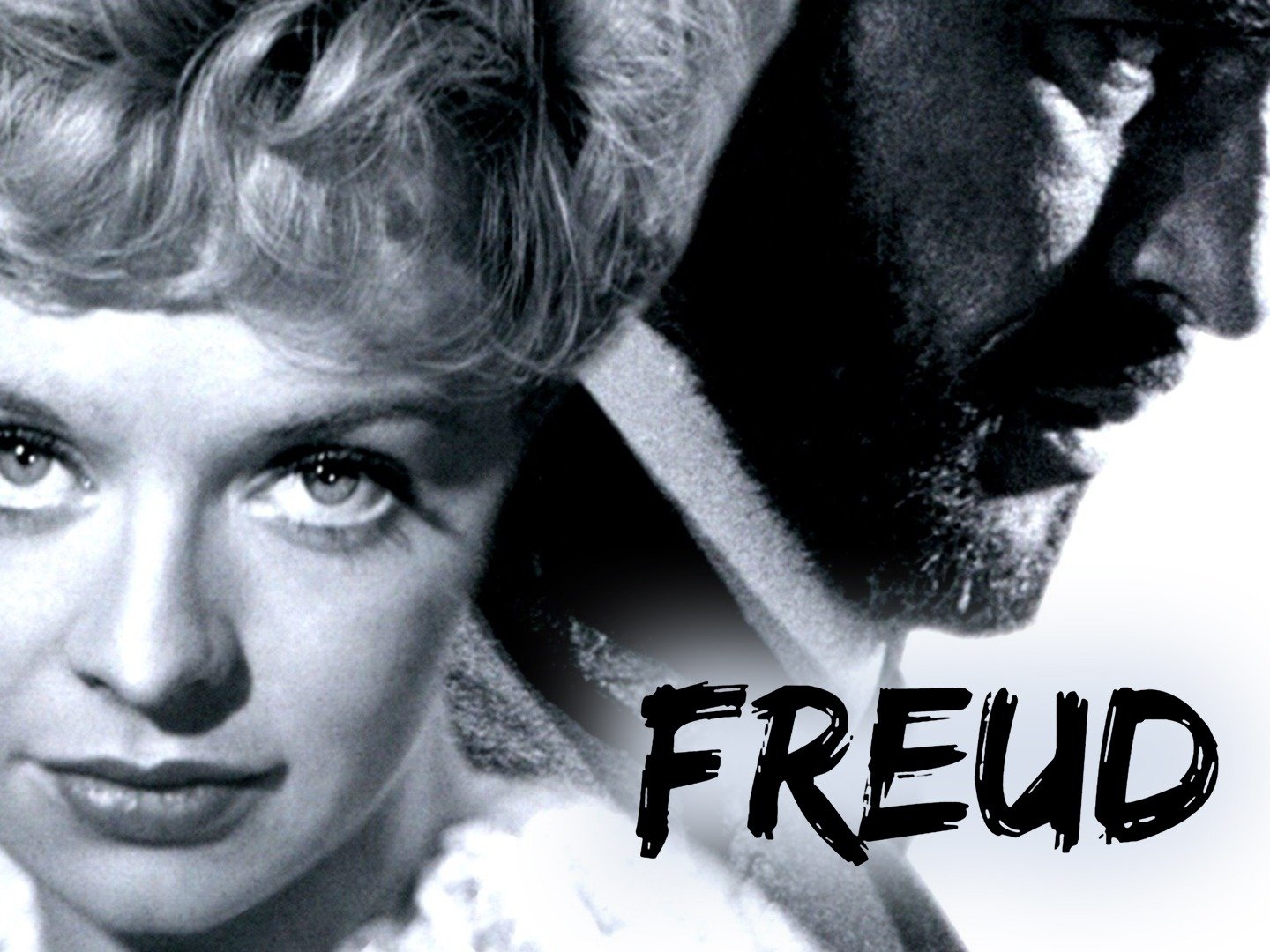
FREUD (aka: Freud: The Secret Passion)
(director: John Huston; screenwriters: Wolfgang Reinhardt/Charles Kaufman/from the story by Charles Kaufman; cinematographer: Douglas Slocombe; editor: Ralph Kemplen; music: Jerry Goldsmith; cast: Montgomery Clift (Sigmund Freud), Susannah York (Cecily Koertner), Larry Parks (Dr. Joseph Breuer), Susan Kohner (Martha Freud), Eileen Herlie (Frau Ida Koertner), Fernand Ledoux (Dr. Charcot), Eric Portman (Dr. Theodore Meynert), David McCallum (Carl von Schlossen), Rosalie Crutchley (Frau Freud), John Huston (Narrator); Runtime: 140; MPAA Rating: PG-13; producer: Wolfgang Reinhardt; Universal International Pictures; 1962-UK)
“A sincere and competent biopic on the early years of Dr. Sigmund Freud.”
Reviewed by Dennis Schwartz
A sincere and competent biopic on the early years of Dr. Sigmund Freud (Montgomery Clift), covering his beginnings in Vienna from 1885 to 1890. Freud was born in May 6, 1856 and died in September 23, 1939. It was filmed in Berlin. It’s narrated and directed by John Huston (“The Asphalt Jungle”) and based on the story by Charles Kaufman, who doubles as cowriter with Wolfgang Reinhardt.
It opens with Huston’s voiceover comparing Copernicus, Darwin and Freud as the three great pioneer scientist of the world who changed how mankind looked at themselves. The astronomer discovered we were no longer to be thought of as the center of the universe; the naturalist discovered that the human species was not a separate entity from nature; and, the neurologist who was to become ‘the father of psychoanalysis’ discovered there was not only a conscious state but descended into the unconscious to let in the light.
The film opens with Freud disillusioned with clinic head Dr. Theodore Meynert’s arrogance in treating patients in a mental asylum and telling mom that he must see Dr. Charcot in Paris to see how he treats patients with hypnosis who suffer from hysterics. Freud returned to Vienna to marry Martha and open a private practice specializing in nervous and brain disorders. While experimenting with hypnotism with his hysteric and neurotic patients, he soon found that he could get his patients to talk by putting them on a couch and getting them to say whatever came into their minds (a practice later coined as free association).
Freud’s experiments are largely presented in his dealings with Cecily Koertner (Susannah York), a young woman suffering a nervous and physical breakdown upon the death of her father. In his treatment of her, Freud tracks a child’s fixation on the parent of the opposite sex and formulates his Oedipus-complex theory. He also discovers that such an Oedipal complex is common, that even he has it, and if not disturbed does not have to be treated as a problem.
Clift makes for a brooding and introspective Freud, obsessed with proving his controversial theories correct. Huston films it as film noir, with Freud the detective. What makes Huston’s black-and white film remarkable is the dream sequences, which are photographed mostly in negative or overexposure. This mise en scéne gave it a tantalizing German expressionist look and made the patient’s repressions come to life on the screen, telling more about the subject matter than the narrative’s wearisome simplistic didactic tone.
REVIEWED ON 3/9/2006 GRADE: B
Dennis Schwartz: “Ozus’ World Movie Reviews”
© ALL RIGHTS RESERVED DENNIS SCHWARTZ